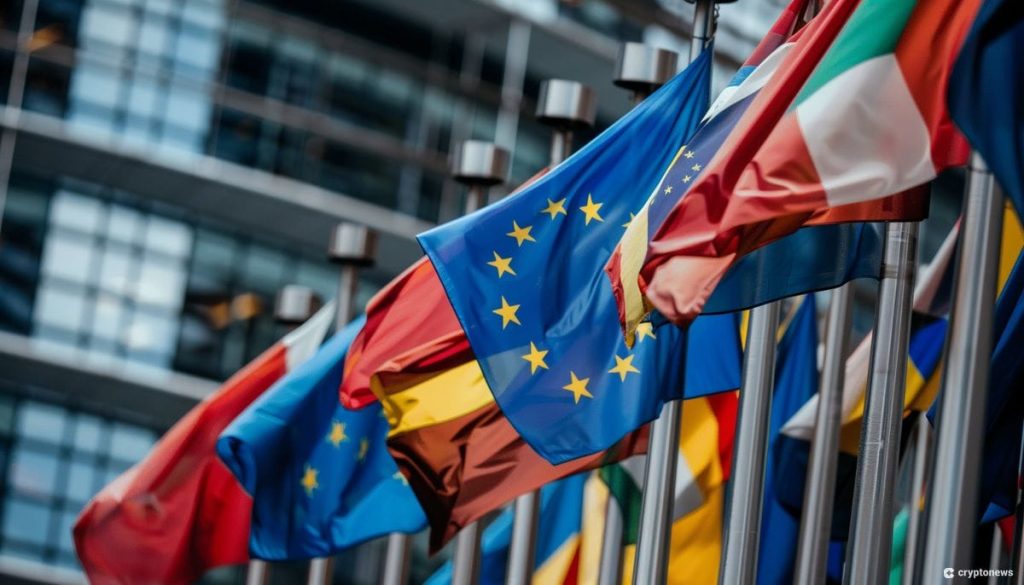Western Europe has seen a significant increase in crypto adoption, with a large number of daily traders ranging from 1.2 million to 1.5 million individuals in the region. Germany, France, and Austria have emerged as the leaders in crypto trading activity, with Austria experiencing the most significant yearly growth of 70%. Western European countries benefit from a clearer level of compliance compared to other regions, with countries such as Germany, Switzerland, and France adhering to the legislative framework established by the European Union for regulating crypto assets. Centralized exchanges and spot trading dominate the cryptocurrency trading landscape in Western Europe, with centralized exchanges attracting the majority of daily traders.
Users in Germany, Switzerland, and the Netherlands prefer trading futures, while other countries in the region lean towards spot trading. Centralized exchanges surpass decentralized exchanges in terms of traffic, with PancakeSwap and Uniswap being the most popular decentralized platforms among traders. Coinbase Wallet, Metamask, Bitget Wallet, and TrustWallet are the preferred cryptocurrency wallets in Western Europe. Over the past year, centralized exchange traffic from Western European users has significantly increased, particularly in Germany, Switzerland, and Poland. Decentralized finance (DeFi) usage constitutes the majority of cryptocurrency activity in Western Europe, while peer-to-peer (P2P) trading volumes remain relatively low due to the prevalence of purchasing digital assets using fiat deposits or linked cards.
In terms of asset choices and trending topics, Western European traders actively engage in decentralized projects, DEX tools and trading, NFTs, Web3 platforms, and popular chain ecosystems like Solana. Emerging cryptocurrencies such as Ordinals, NFTs, RWAs, DePin, Solana ecosystem tokens, and meme coins have gained significant attention among traders in the region. The Bitget research suggests that cryptocurrency participants in Western Europe typically possess a high level of education, exercise caution, and prioritize long-term investments. Additionally, a significant portion of local users actively engage in both online and offline forums, including community Ask Me Anything (AMAs), where they exchange market insights and discuss industry trends. Nearly 50% of European cryptocurrency holders owned Bitcoin in February of the year, according to a recent survey.
Germany and France have emerged as leaders in crypto trading activity in Western Europe, with Austria experiencing the most significant yearly growth rate of 70%. The region benefits from a clearer level of compliance compared to other regions, with countries such as Germany, Switzerland, and France adhering to the legislative framework established by the European Union for regulating crypto assets. Centralized exchanges and spot trading dominate the cryptocurrency trading landscape in Western Europe, with centralized exchanges attracting the majority of daily traders. While users in Germany, Switzerland, and the Netherlands prefer trading futures, other countries in the region lean towards spot trading.
Centralized exchanges surpass decentralized exchanges in terms of traffic in Western Europe, with PancakeSwap and Uniswap being the most popular decentralized platforms among traders. Coinbase Wallet, Metamask, Bitget Wallet, and TrustWallet are the preferred cryptocurrency wallets in Western Europe. Over the past year, centralized exchange traffic from Western European users has significantly increased, particularly in Germany, Switzerland, and Poland. Decentralized finance (DeFi) usage constitutes the majority of cryptocurrency activity in Western Europe, while peer-to-peer (P2P) trading volumes remain relatively low due to the prevalence of purchasing digital assets using fiat deposits or linked cards.
In terms of asset choices and trending topics, Western European traders actively engage in decentralized projects, DEX tools and trading, NFTs, Web3 platforms, and popular chain ecosystems like Solana. Emerging cryptocurrencies such as Ordinals, NFTs, RWAs, DePin, Solana ecosystem tokens, and meme coins have gained significant attention among traders in the region. The Bitget research suggests that cryptocurrency participants in Western Europe typically possess a high level of education, exercise caution, and prioritize long-term investments. Additionally, a significant portion of local users actively engage in both online and offline forums, including community Ask Me Anything (AMAs), where they exchange market insights and discuss industry trends. Nearly 50% of European cryptocurrency holders owned Bitcoin in February of the year, according to a recent survey.


